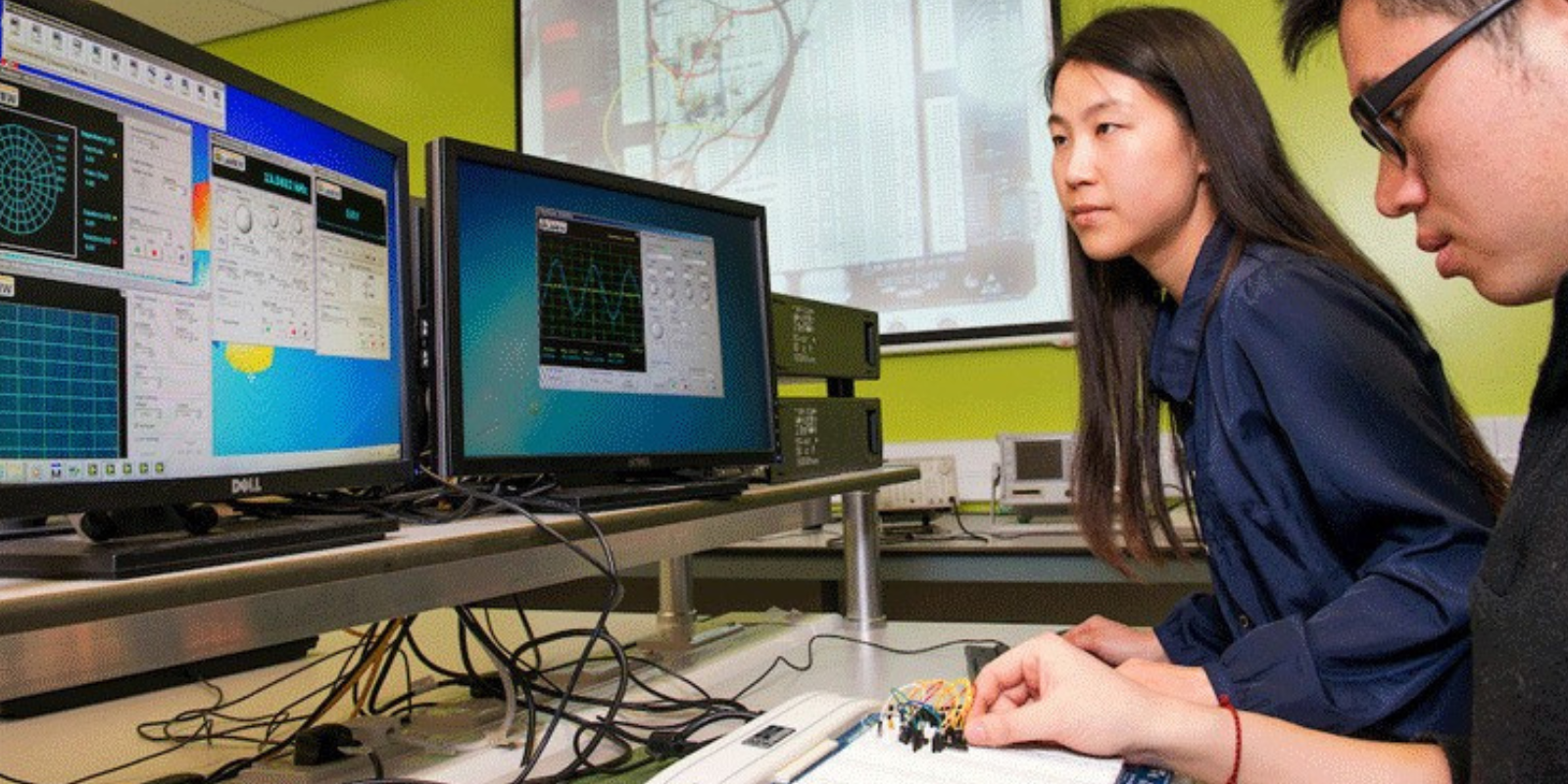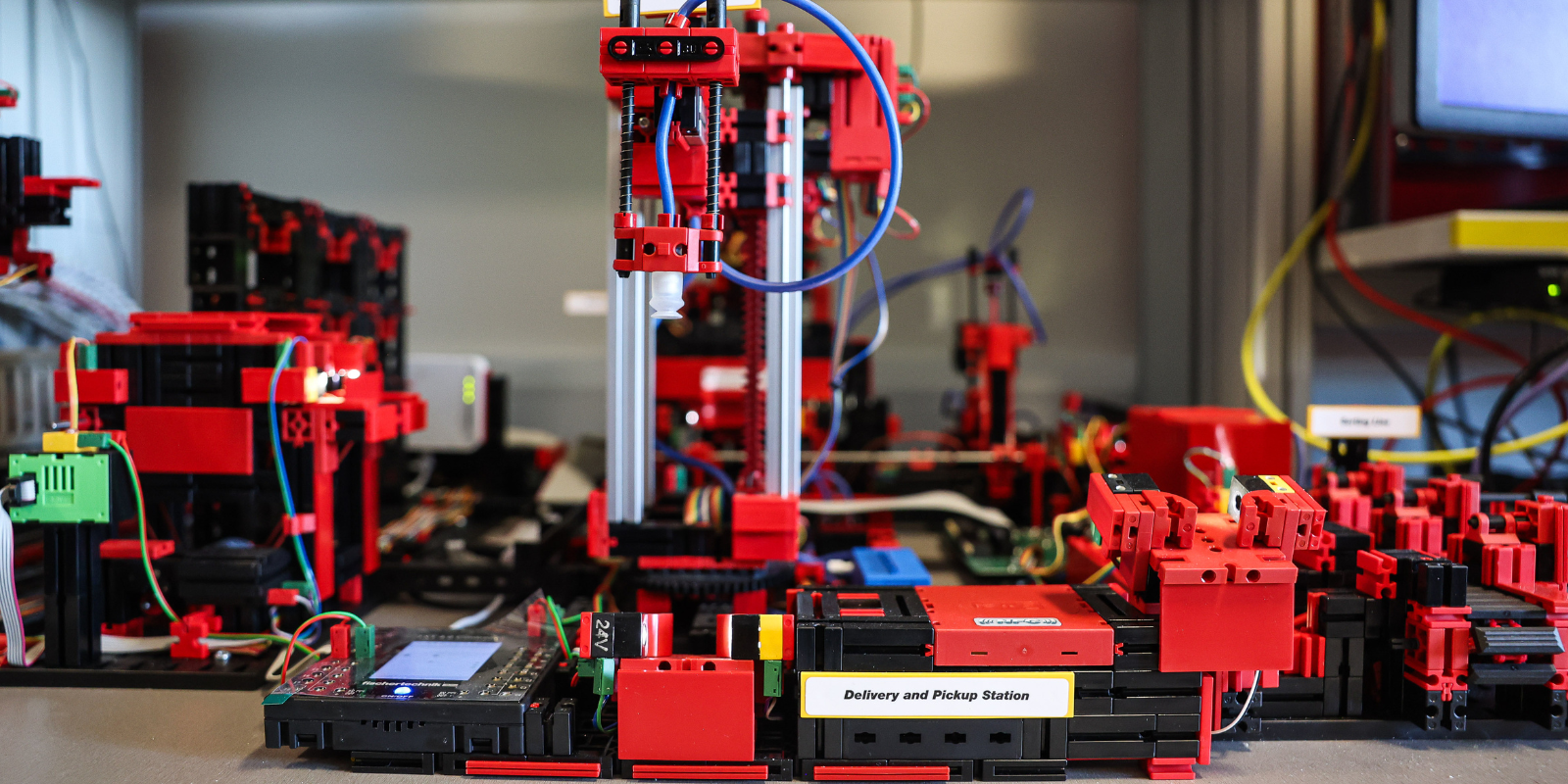
Queen’s University Belfast
Founded in 2009, The Centre for Secure Information Technologies (CSIT) at Queen’s University Belfast is a global leader in research and innovation, working in partnership with some of the world’s biggest technology businesses.
An Alumni Story: Professor Máire O'Neill, Director of the Centre for Secure Information Technologies
The Centre for Secure Information Technologies (CSIT) at Queen’s University Belfast is a global leader in research and innovation, working in partnership with some of the world’s biggest technology businesses. Founded in 2009, it champions technical skills in Northern Ireland and has created thousands of local cybersecurity jobs. In 2015 it won a Queen Elizabeth Prize for Education. Here, the Centre’s director, Professor Máire O’Neill, explains the Prize’s impact.
We applied for the Prize when we were coming to the end of our first phase of funding, and we found out we’d won just as we were heading into phase two. It couldn’t have been more timely. It highlighted not only what we’d achieved so far, but also our potential.
I was one of the research directors at the time, so was very much involved in the application, and it was really rewarding pulling all the information together and looking at the different facets of what we were doing. It forced us to think about the wider impacts of our work.
Within CSIT, we have a typical university research team of academics, postdocs and PhD students. But we also have a really strong innovation unit, with engineering, business development and marketing staff. The Prize recognised how effective our model was and showed what we could achieve by working together. That was hugely rewarding and a morale boost for everyone involved.


I think there’s a layered effect when it comes to the Prize’s impact. Firstly, for the team, these things encourage you through the hard times, when you’re working all hours, slogging through business proposals or bids on top of everything else. Successes like this make it all worthwhile. Then of course it’s rewarding for the university itself, because it’s such a highly regarded honour. They really value it.
It’s an endorsement for your work within the institution, and that can be very beneficial. In our case, when we were going for phase two, the university provided significant matched funding alongside critical logistical support, and this came shortly after our win.
It not only builds your reputation internally – but also regionally, nationally and internationally.

Our focus wasn’t just on delivering high-quality research, but also on innovation and working with business to build skills and drive job creation. At the time, there were around 950 cybersecurity jobs in the region. That’s now risen to 2,750 and we’re aiming for 5,000.
Being recognised at a national level also puts you on the map globally. At that time, we’d established ourselves as an anchor in our region in terms of a burgeoning cybersecurity community. Now we’re regarded as one of the leading cybersecurity ecosystems in the world.
Throughout our lifetime, we’ve attracted national and international partners, and the Prize has really helped when it comes to building new relationships. At the end of phase one, around the time we won, we had a number of spin outs, one of which was called Titan IC. That went on to be hugely successful and was bought by Nvidia, one of the world’s most successful microchip manufacturers. Nvidia has since remained in the region, is growing its R&D team here and continued to work closely with us.

One of our more recent partnerships is with Rolls Royce. That’s interesting, because while Rolls Royce is a UK company, it was the US cybersecurity division that first came to us, as a direct result of our international reputation – which the prize had helped to grow. They were looking to set up a global cybersecurity research network with three universities worldwide. They chose two in the US and then us in the UK.
We’re currently involved in one of our largest funded projects to date, the £10.4M Cyber-AI Hub, which is hosted by CSIT and seeks to deliver exceptional research and innovation in the areas of AI enabled cybersecurity and the security of AI. It also aims to develop a talent pipeline of cyber security professionals with strong industry links. Funded by the UK Government from the New Deal for Northern Ireland, it includes a Doctoral Training Programme, a hub for industry collaboration and skills development, bursaries for students to join Queen’s MSc in Applied Cyber Security or MSc Artificial Intelligence, as well as an annual snapshot mapping the growth and development of the cyber industry in the region.
The recognition the Prize brings has helped with so much of what we’ve achieved. We include it in all our activity – brochures, marketing, presentations, bids, you name it. If you have a project that’s innovative and successful, why wouldn’t you apply? For us, it was a very obvious choice.
